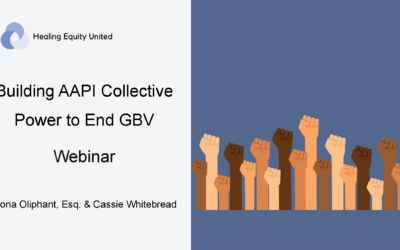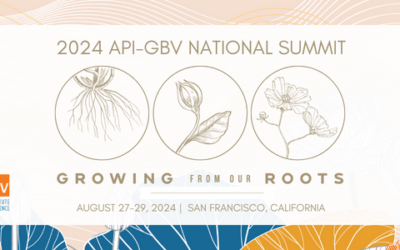Crime Victim Fund Administrators
Language Access Planning
- Language Access & Interpretation: Resources for Policy, Research, Services and Advocacy – 2011
- Language Access: Considerations & Recommendations for Advocates Supporting Survivors of Violence – 2014
- Developing a Language Access Plan for your Agency – 2015
- Language Access Policy Template – 2016
Training on Interpretation
- Interpretation: The Importance of Language in Domestic Violence and Sexual Assualt – 2015
- Interagency Language Roundtable Self-Assessments of Speaking, Listening, and Reading Proficiency
- Breaking Silence: Interpreting for Victim Services – 2015 (Ayuda)
Finding and Working with Interpreters
- Working with Interpreteers – 2015
- Interpretation Services – 2015
- How to Address Problems with Interpretation – 2015
- Considerations When Using Interpreters for Victims with Limited English Proficiency – 2015
- Resource Guide for Advocates & Attorneys on Interpretation Services for Domestic Violence, Sexual Assualts, and Trafficking Victims – 2016
How to Work with Deaf/Hard of Hearing/DeafBlind Communities
- Serving Individuals who are Deaf, Hard of Hearing or Deaf-Blind and do not use American Sign Language – 2015
- Working with Sign Language Interpreters for Events – 2017 (Vera)
- Providing Interpreters to Deaf Survivors (DeafHope)
Related Resources
Critical Intersections of FGM/C: The Value of Intersectionality in Cross-Collaboration
April 23, 8am HST/11am PST/1pm CST/2pm ESTOn April 23rd, API-GBV will be partnering with Sahiyo U.S. for Critical Intersections of FGM/C: The Value of Intersectionailty in Cross-Collaboration, a presentation of Sahiyo’s Mixed Methods Report as part of the survivor and...
API-GBV Applauds the Revisions to Collecting Federal Data on Race and Ethnicity Statistical Policy Directive No. 15: Standards for Maintaining, Collecting, and Presenting Federal Data on Race and Ethnicity
April 1, 2024 Oakland, CA-- The Asian Pacific Institute on Gender-Based Violence (API-GBV) applauds the Biden Administration's announcement of revisions to Statistical Policy Directive No. 15 (SPD 15): Standards for Maintaining, Collecting, and Presenting Federal Data...
Building AAPI Collective Power to End GBV
March 7, 8am HST/11am PST/1pm CST/2pm ESTAsians, Asian Americans, and Pacific Islanders (AAPIs) are often left out of conversations around diversity, equity, inclusion, and belonging (DEIB) in the U.S. Often lumped together as a “model minority,” certain AAPI groups...
2024 APi-GBV National Summit: Growing From Our Roots
Latest Update: Early Bird Registration Open Now Through June 1!See all available API-GBV National Summit information below:This page will continue to be updated as more information is released. For any technical issues or additional questions, please contact our team...


